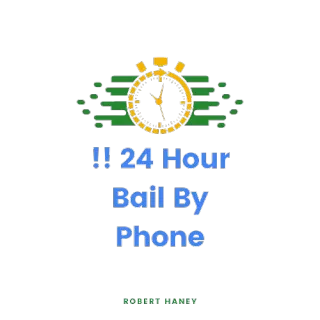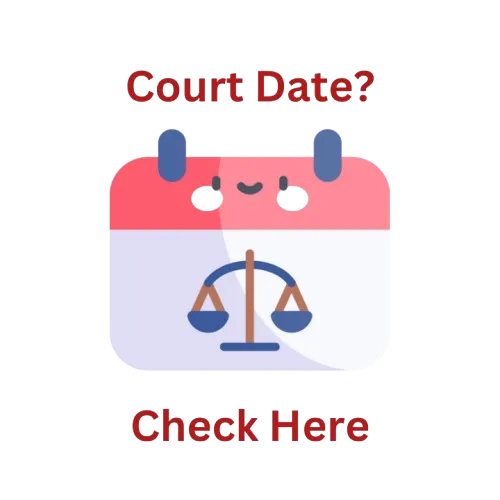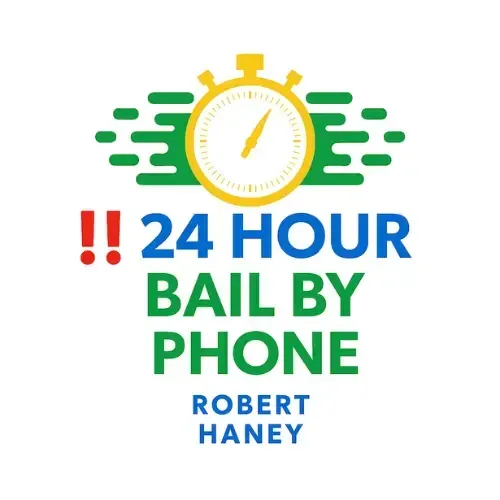!!24 Hour Bail By Phone LLC
Bail Bonds - Daytona Beach, FL

386 256-3101
Resources - State of Florida
Local Helpful Links and Resources
FLORIDA DEPARTMENT OF LAW ENFORCEMENT
STATE OF FLORIDA COURTHOUSES
FDLE WARRANT SEARCH
FLORIDA CRIME INFORMATION CENTER
FLORIDA SEX OFFENDERS AND PREDATORS
Volusia Crime Watch -Warrants

BAIL BONDS FACTS
Bail Bonds Fact #1
Remission of Bail:
According to FS 903.28, remission of bail can be granted within a two-year period under the following conditions:
If the defendant is returned within 90 days, remission may be up to 100% (FS 903.28(2)).
If returned within 180 days, remission can be up to 95% (FS 903.28(3)).Within 270 days, remission can reach up to 90% (FS 903.28(4)).
Within one year, up to 85% remission is possible (FS 903.28(5)).
Within two years, remission may be up to 50% (FS 903.28(6)).
The court is mandated to direct remission based on the above criteria, especially if the surety was involved in the defendant's apprehension or surrender, or if the surety substantially attempted to do so without thwarting the prosecution process.
Remission is also applicable if the surety didn't significantly participate in the defendant's return, once the costs have been deducted and the delay hasn't impeded prosecution.
Bail Bonds Fact #3
Forfeiture Defenses:
If the indictment isn't filed within six months of arrest and the clerk of court doesn't give 72 hours notice to the surety of the defendant’s required appearance, the bond cannot be forfeited (FS 903.26(1)(b)).
If circumstances beyond the defendant's control make it impossible to appear (FS 903.26(5)(a)), with potential adverse economic consequences not considered as grounds.
If the defendant is adjudicated insane and confined, or in jail/prison (FS 903.26(5)(b)).If surrender or arrest of the defendant hasn't impeded proper prosecution (FS 903.26(5)(c)).
If the defendant is arrested and returned to court prior to judgment (FS 903.26(8)), forfeiture won't be discharged if the surety agent fails to pay return costs.
If costs aren't agreed upon by the surety agent and state attorney, the court will determine them.
Bail Bonds Fact #2
Bail Bonds Arrest Authority:
According to FS 903.20, a surety has the authority to arrest a principal for surrender to official custody either before a forfeiture (as per FS 903.22) or within two years of the forfeiture date (as per FS 903.29).
In Florida, bounty hunters are not permitted. Apprehension of bail fugitives is strictly governed by FS 648.30(2)&(3):
No one can claim to be a bail enforcement agent, bounty hunter, or similar title in Florida.
Only certified law enforcement officers or individuals licensed and appointed according to state regulations are authorized to apprehend, detain, or arrest a principal on a bond, regardless of where it was issued.
Violation of this law constitutes a third-class felony under FS 648.30(4).
Bail Bonds Fact #4
Regarding Forfeiture Payment Deadlines:
Forfeitures must be paid within 60 days of the notice date (FS 903.26(2)(a)).
If not paid within 60 days, the clerk of the court must provide the Department of Financial Services and the surety with a certification of the judgment docket within 10 days (FS 903.27(1)).
If the judgment remains unpaid for 35 days, the clerk informs the Department of Financial Services and sheriff that the judgment is unsatisfied (FS 903.27(1)).
Surety bail bonds cannot be executed by an agent with an unpaid judgment for 35 days or by a company with an unpaid judgment for 50 days (FS 903.27(3)).
No sheriff can approve surety bail bonds from such agents or companies until the judgment is paid (FS 903.27(3)).
The surety/agent has 35 days to file a motion to set aside a judgment or stay. To file the motion, the surety must pay the clerk the judgment amount, which is held in escrow until the court's ruling (FS 903.27(5)).
Tolling occurs if the defendant returns to the court of jurisdiction; the operation of this section is paused until the court makes its disposition (FS 903.27(1)).
Watch out for Bail Bondsman Scams
Bail bondsman scams can be detrimental to individuals already facing legal challenges. These scams typically exploit the urgency and emotional vulnerability of those seeking bail assistance. Here are some common types of bail bondsman scams to watch out for:
Overcharging: Agents inflate fees beyond legal limits, exploiting clients' lack of bail bond regulation knowledge.
Hidden Fees: Additional charges, like administrative or processing fees, are added without upfront disclosure.
False Promises: Scammers may claim special influence for bail approval, often untrue.
Unlicensed Agents: Operating without proper licenses leads to legal and financial risks for clients.
Bait-and-Switch Tactics: Initial low quotes are raised later, trapping clients into costly contracts.
Refusal to Return Collateral: Agents withhold collateral, even after court obligations are met, with excuses.
Pressure Tactics: Aggressive tactics coerce clients into quick, uninformed decisions, exploiting their distress.
To avoid falling victim to bail bondsman scams, individuals should:
Verify the legitimacy of the bail bond agency by checking their credentials and licenses.
Review all contract terms and fees carefully before signing any agreements.
Ask questions about any unclear or suspicious terms in the contract.
Be wary of agents who pressure or rush them into making decisions.
Seek recommendations from trusted sources or legal professionals when choosing a bail bond agent.
By staying vigilant and informed, individuals can protect themselves from falling prey to bail bondsman scams and ensure they receive fair and legitimate assistance during challenging times.
3811 W. International Speedway Blvd
Daytona Beach, FL
Frequently Asked Questions
Answers to Common Bail Bonds Questions
How Long Does it Take to Have a Bail Bondsman Post Your Bond?
The time it takes for a bail bondsman to post your bond can vary depending on several factors, including the specific circumstances of your case, the availability of the bondsman, and the jurisdiction where you're being held. In many cases, !!24 Hour Bail By Phone aims to post bonds as quickly as possible, often within a few hours or less of being contacted. However, this can also depend on the complexity of the case and any administrative processes involved. It's advisable to reach out to a bail bondsman as soon as possible after being arrested to initiate the bond posting process promptly. We prioritize a swift release to ensure you're freed as soon as possible.
Bail Bonds Daytona Beach, FL
!!24 Bail By Phone LLC is ready to assist you with all of your bail bond needs. We specialize in "Bail By Phone" service. We understand the urgency to post bond and get your loved one released as quickly as possible!

What is a Bail Bond?
If the arrested individual (or a representative) is unable to cover the bail amount set by the court, they have the option of obtaining a bail bond. A bail bond involves enlisting the services of a bondsman who intervenes by paying the bail on behalf of the arrested individual.
Lorem ipsum dolor sit amet, consectetur adipisicing elit. Autem dolore, alias, numquam enim ab voluptate id quam harum ducimus cupiditate similique quisquam et deserunt, recusandae.
Can a bail bondsman arrest an individual?
Bail Bonds Arrest Authority according to FS 903.20, a surety has the authority to arrest a principal for surrender to official custody either before a forfeiture (as per FS 903.22) or within two years of the forfeiture date (as per FS 903.29).In Florida, bounty hunters are not permitted. Apprehension of bail fugitives is strictly governed by FS 648.30(2)&(3):No one can claim to be a bail enforcement agent, bounty hunter, or similar title in Florida. Only certified law enforcement officers or individuals licensed and appointed according to state regulations are authorized to apprehend, detain, or arrest a principal on a bond, regardless of where it was issued. Violation of this law constitutes a third-class felony under FS 648.30(4).
How long are you obligated to the bail bondsman?
You remain accountable to !! 24 Hour Bail By Phone bail for the duration of your pending court appearances. Once your case is resolved—whether through dismissal, a not guilty verdict, or sentencing—the bond obligation ceases. It's important to note that any court-issued fines, fees, or costs are not the responsibility of the !!24 Bail By Phone. Our primary role is to ensure your appearance at all scheduled court dates. In Florida, a bail bondsman can only arrest you if you fail to appear in court. Should this occur, the judge can declare your bond forfeited, placing the responsibility on us to pay the full bail amount. This incentivizes us to locate and return you to the criminal justice system.
What is a Bail Bond?
If the arrested individual (or a representative) is unable to cover the bail amount set by the court, they have the option of obtaining a bail bond. A bail bond involves enlisting the services of a bondsman who intervenes by paying the bail on behalf of the arrested individual.
What is Bail?
Bail serves as a guarantee in the legal process. It represents the monetary sum set by a court following an arrest. If the arrested individual or someone acting on their behalf pays the bail amount to the court, the individual can be released from custody. However, this doesn't absolve them of the arrest; rather, it allows them to avoid immediate or continued incarceration.

